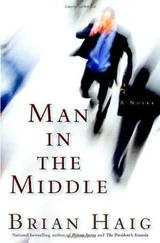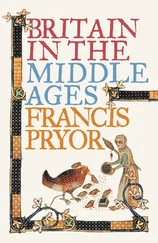John Haaren - Famous Men of The Middle Ages
Здесь есть возможность читать онлайн «John Haaren - Famous Men of The Middle Ages» весь текст электронной книги совершенно бесплатно (целиком полную версию без сокращений). В некоторых случаях можно слушать аудио, скачать через торрент в формате fb2 и присутствует краткое содержание. Жанр: История, на английском языке. Описание произведения, (предисловие) а так же отзывы посетителей доступны на портале библиотеки ЛибКат.
- Название:Famous Men of The Middle Ages
- Автор:
- Жанр:
- Год:неизвестен
- ISBN:нет данных
- Рейтинг книги:5 / 5. Голосов: 1
-
Избранное:Добавить в избранное
- Отзывы:
-
Ваша оценка:
- 100
- 1
- 2
- 3
- 4
- 5
Famous Men of The Middle Ages: краткое содержание, описание и аннотация
Предлагаем к чтению аннотацию, описание, краткое содержание или предисловие (зависит от того, что написал сам автор книги «Famous Men of The Middle Ages»). Если вы не нашли необходимую информацию о книге — напишите в комментариях, мы постараемся отыскать её.
Famous Men of The Middle Ages — читать онлайн бесплатно полную книгу (весь текст) целиком
Ниже представлен текст книги, разбитый по страницам. Система сохранения места последней прочитанной страницы, позволяет с удобством читать онлайн бесплатно книгу «Famous Men of The Middle Ages», без необходимости каждый раз заново искать на чём Вы остановились. Поставьте закладку, и сможете в любой момент перейти на страницу, на которой закончили чтение.
Интервал:
Закладка:
John Henry Haaren
Famous Men of The Middle Ages
Preface
The study of history, like the study of a landscape, should begin with the most conspicuous features. Not until these have been fixed in memory will the lesser features fall into their appropriate places and assume their right proportions.
The famous men of ancient and modern times are the mountain peaks of history. It is logical then that the study of history should begin with the biographies of these men.
Not only is it logical; it is also pedagogical. Experience has proven that in order to attract and hold the child's attention each conspicuous feature of history presented to him should have an individual for its center. The child identifies himself with the personage presented. It is not Romulus or Hercules or Cesar or Alexander that the child has in mind when he reads, but himself, acting under similar conditions.
Prominent educators, appreciating these truths, have long recognized the value of biography as a preparation for the study of history and have given it an important place in their scheme of studies.
The former practice in many elementary schools of beginning the detailed study of American history without any previous knowledge of general history limited the pupil's range of vision, restricted his sympathies, and left him without material for comparisons. Moreover, it denied to him a knowledge of his inheritance from the Greek philosopher, the Roman lawgiver, the Teutonic lover of freedom. Hence the recommendation so strongly urged in the report of the Committee of Ten — and emphasized, also, in the report of the Committee of Fifteen — that the study of Greek, Roman and modern European history in the form of biography should precede the study of detailed American history in our elementary schools. The Committee of Ten recommends an eight years' course in history, beginning with the fifth year in school and continuing to the end of the high school course. The first two years of this course are given wholly to the study of biography and mythology. The Committee of fifteen recommends that history be taught in all the grades of the elementary school and emphasizes the value of biography and of general history.
The series of historical stories to which this volume belongs was prepared in conformity with the foregoing recommendations and with the best practice of leading schools. It has been the aim of the authors to make an interesting story of each man's life and to tell these stories in a style so simple that pupils in the lower grades will read them with pleasure, and so dignified that they may be used with profit as text-books for reading.
Teachers who find it impracticable to give to the study of mythology and biography a place of its own in an already overcrowded curriculum usually prefer to correlate history with reading and for this purpose the volumes of this series will be found most desirable.
The value of the illustrations can scarcely be over-estimated. They will be found to surpass in number and excellence anything heretofore offered in a school-book. For the most part they are reproductions of world-famous pictures, and for that reason the artists' names are generally affixed.
The Gods of the Teutons
In the little volume called The Famous Men of Rome you have read about the great empire which the Romans established. Now we come to a time when the power of Rome was broken and tribes of barbarians who lived north of the Danube and the Rhine took possession of lands that had been part of the Roman Empire . These tribes were the Goths, Vandals, Huns, Franks and Anglo-Saxons. From them have come the greatest nations of modern times. All except the Huns belonged to the same race and are known as Teutons. They were war-like, savage and cruel. They spoke the same language — though in different dialects — and worshiped the same gods. Like the old Greeks and Romans they had many gods.
Woden, who was also called Odin, was the greatest of all. His name means "mighty warrior, " and he was king of all the gods. He rode through the air mounted on Sleipnir, an eightfooted horse fleeter than the eagle. When the tempest roared the Teutons said it was the snorting of Sleipnir. When their ships came safely into port they said it was Woden's breath that had filled their sails and wafted their vessels over the blue waters.
Thor, a son of Woden, ranked next to him among the gods. He rode through the air in a chariot drawn by goats. The Germans called him Donar and Thunar, words which are like our word thunder. From this we can see that he was the thunder god. In his hand he carried a wonderful hammer which always came back to his hand when he threw it. Its head was so bright that as it flew through the air it made the lightning. When it struck the vast ice mountains they reeled and splintered into fragments, and thus Thor's hammer made thunder.
Another great god of our ancestors was Tiew. He was a son of Woden and was the god of battle. He was armed with a sword which flashed like lightning when he brandished it. A savage chief named Attila routed the armies of the Romans and so terrified all the world that he was called "The Scourge of God." His people believed that he gained his victories because he had the sword of Tiew, which a herdsman chanced to find where the god had allowed it to fall. The Teutons prayed to Tiew when they went into battle.
Frija (free' ya) was the wife of Woden and the queen of the gods. She ruled the bright clouds that gleam in the summer sky, and caused them to pour their showers on meadow and forest and mountain.
Four of the days of the week are named after these gods. Tuesday means the day of Tiew; Wednesday, the day of Woden; Thursday, the day of Thor; and Friday, the day of Frija.
Frija's son was Baldur; who was the favorite of all the gods. Only Loki, the spirit of evil, hated him. Baldur's face was as bright as sunshine. His hair gleamed like burnished gold. Wherever he went night was turned into day.
One morning when he looked toward earth from his father Woden's palace black clouds covered the sky, but he saw a splendid rainbow reaching down from the clouds to the earth. Baldur walked upon this rainbow from the home of the gods to the dwellings of men. The rainbow was a bridge upon which the gods used to come to earth.
When Baldur stepped from the rainbow-bridge to the earth he saw a king's daughter so beautiful that he fell in love with her.
But an earthly prince had also fallen in love with her. So he and Baldur fought for her hand. Baldur was a god and hence was very much stronger than the prince. But some of Baldur's magic food was given to the prince and it made him as strong as Baldur.
Frija heard about this and feared that Baldur was doomed to be killed. So she went to every beast on the land and every fish of the sea and every bird of the air and to every tree of the wood and every plant of the field and made each promise not to hurt Baldur.
But she forgot the mistletoe. So Loki, who always tried to do mischief, made an arrow of mistletoe, and gave it to the prince who shot and killed Baldur with it.
Then all the gods wept, the summer breeze wailed, the leaves fell from the sorrowing trees, the flowers faded and died from grief, and the earth grew stiff and cold. Bruin, the bear, and his neighbors, the hedgehogs and squirrels, crept into holes and refused to eat for weeks and weeks.
The pleasure of all living things in Baldur's presence means the happiness that the sunlight brings. The sorrow of all living things at his death means the gloom of northern countries when winter comes.
The Valkyries were beautiful female warriors. They had some of Woden's own strength and were armed with helmet and shield and spear. Like Woden, they rode unseen through the air and their horses were almost as swift as Sleipnir himself. They swiftly carried Woden's favorite warriors to Valhalla , the hall of the slain. The walls of Valhalla were hung with shields; its ceiling glittered with polished spearheads. From its five hundred and forty gates, each wide enough for eight hundred men abreast to march through, the warriors rushed every morning to fight a battle that lasted till nightfall and began again at the break of each day. When the heroes returned to Valhalla the Valkyries served them with goblets of mead such as Woden drank himself.
Читать дальшеИнтервал:
Закладка:
Похожие книги на «Famous Men of The Middle Ages»
Представляем Вашему вниманию похожие книги на «Famous Men of The Middle Ages» списком для выбора. Мы отобрали схожую по названию и смыслу литературу в надежде предоставить читателям больше вариантов отыскать новые, интересные, ещё непрочитанные произведения.
Обсуждение, отзывы о книге «Famous Men of The Middle Ages» и просто собственные мнения читателей. Оставьте ваши комментарии, напишите, что Вы думаете о произведении, его смысле или главных героях. Укажите что конкретно понравилось, а что нет, и почему Вы так считаете.










